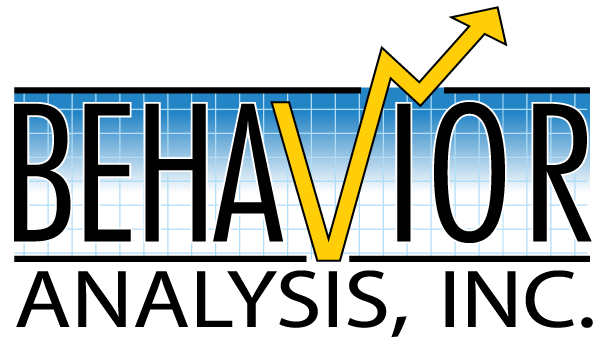How Miami Parents Can Empower Their Child’s ABA Journey
When families in Miami first hear about Applied Behavior Analysis (ABA) therapy, it’s usually during a time of uncertainty and hope. Perhaps a child has just been diagnosed with autism spectrum disorder (ASD), or a pediatrician has suggested specialized behavioral therapy. In Miami, where the warmth of the community is matched only by the year-round sunshine, parents are often searching for the best options to help their children flourish. One of the most effective interventions available in Miami is ABA therapy—but what many don’t realize is how central the role of parents is in the process.
In this blog, we’ll explore the role of parents in ABA therapy, focusing on the unique experiences and opportunities available to Miami parents. We’ll delve into why parent involvement is critical, how they can actively participate, and the long-term benefits for the entire family. Whether you’re just starting your ABA journey or seeking ways to enhance your involvement, this guide is tailored for you.
What is ABA Therapy?
ABA therapy, or Applied Behavior Analysis, is a scientific, evidence-based approach to understanding behavior and how it is affected by the environment. ABA therapy is widely recognized as the gold standard for treating children with ASD but is also beneficial for individuals with a variety of behavioral challenges.
Therapy is highly individualized, with programs designed to improve communication, social skills, self-care, and academic skills while reducing challenging behaviors. The heart of ABA lies in its systematic use of reinforcement, prompting, and data-driven analysis.
In Miami, ABA therapy is provided in clinics, schools, and homes, allowing flexibility for families and practitioners alike. But regardless of the setting, one factor remains constant: the irreplaceable involvement of parents.
Why is Parental Involvement Important in ABA Therapy?
Miami parents are known for their dedication and love—two qualities that form the backbone of successful ABA therapy in Miami. ABA is not a passive intervention; it’s a collaborative journey between therapists, children, and families. When parents actively participate, children make greater and more sustainable progress. Here’s why:
- Consistency Across Environments: Skills taught in therapy sessions need to be practiced at home, at school, and in the community. Parental involvement ensures that children experience consistent expectations and reinforcement, making it easier to generalize new skills.
- Enhanced Learning Opportunities: Parents can turn daily routines—mealtime, bath time, playtime—into powerful opportunities for learning and growth, reinforcing what’s learned in therapy.
- Faster Progress: Children whose parents are engaged in ABA therapy tend to achieve goals more quickly. The reason is simple: they receive more hours of structured learning and support, both inside and outside formal sessions.
- Empowerment for Parents: When Miami parents learn ABA strategies, they gain powerful tools to address challenges and celebrate successes. This empowerment reduces stress and increases confidence.
- Stronger Relationships: Working together as a team fosters trust and connection between parents, children, and therapists.
The Roles Miami Parents Play in ABA Therapy
The role of parents in ABA therapy in Miami is multifaceted. Let’s break down the main ways Miami parents support their child’s ABA journey:
1. Collaborators in Assessment and Goal Setting
A successful ABA program begins with a thorough assessment. Miami parents are essential sources of information—they know their child’s strengths, challenges, and daily routines better than anyone else. By sharing observations and insights, parents help therapists develop goals that are meaningful and relevant to their child’s life.
2. Partners in Implementation
While Board Certified Behavior Analysts (BCBAs) create the therapy plan and Registered Behavior Technicians (RBTs) carry out sessions, parents play a hands-on role at home. They learn specific ABA strategies—such as prompting, reinforcement, and fading—to use throughout the day. In Miami, many ABA providers such as ourselves schedule caregiver training sessions for parents, empowering them to practice these skills under professional guidance.
3. Advocates for Their Child
Miami parents are their child’s best advocates, both within therapy and beyond. They monitor progress, ask questions, and ensure that their child’s needs are met. This is especially important in Miami, where diverse cultures and languages may influence how therapy is delivered and received. Parents who advocate for culturally competent, personalized ABA therapy help ensure the best outcomes for their child.
4. Models of Positive Behavior
Children learn by example. When Miami parents model positive behaviors—such as calm communication, patience, and perseverance—they provide a powerful template for their children to emulate. BCBAs also often coach parents on how to use modeling effectively within ABA therapy.
5. Supporters of Generalization
Generalization is a core principle of ABA therapy. In one regard it means that skills learned in one setting (like a therapy clinic) transfer to others (like home, school, or playground). Miami parents can create real-world opportunities for their child to use new skills, making therapy more meaningful and lasting.
Parent Training in ABA Therapy: What to Expect in Miami
ABA therapy in Miami places a strong emphasis on parent training. Here’s what Miami parents can expect:
- Educational Workshops: Many ABA therapy providers in Miami offer group workshops where parents learn about the principles of ABA, common techniques, and how to handle challenging behaviors.
- Individual Coaching: Parents often receive one-on-one coaching from BCBAs, tailored to their child’s unique needs and the family’s routines.
- Hands-On Practice: Parents participate in live practice sessions, sometimes with their child present, to build confidence in using ABA strategies.
- Ongoing Support: Miami parents benefit from regular check-ins, progress reviews, and opportunities to ask questions and troubleshoot issues.
The key is that parent training isn’t a one-time event—it’s a continuous process, evolving as the child grows and goals change.
Unique Considerations for Miami Parents
Miami is a city of incredible cultural diversity. This mosaic of backgrounds brings both opportunities and challenges for ABA therapy in Miami. Here’s how Miami parents can maximize their involvement:
- Language and Communication: Miami is home to families who speak English, Spanish, Haitian Creole, and more. It’s essential that ABA providers offer materials and training in the family’s preferred language, so parents can fully engage in therapy.
- Cultural Traditions: Certain ABA techniques may need to be adapted to respect cultural norms and family traditions in Miami. Parents should feel comfortable discussing their values and customs with therapists, to ensure therapy is a good fit.
- Community Resources: Miami offers a wealth of resources, including support groups, community centers, and recreational programs. Parents who connect with other families gain emotional support and practical advice.
Challenges Miami Parents May Face in ABA Therapy
Parent involvement is vital, but it’s not always easy. Miami parents may encounter obstacles such as:
- Time Constraints: Balancing work, other children, and daily responsibilities can make it difficult to participate in therapy sessions and training.
- Emotional Stress: The journey through ABA therapy can be emotionally taxing, especially when progress is slow or setbacks occur.
- Financial Considerations: While many insurance plans in Miami cover ABA therapy, out-of-pocket costs can still be a concern.
- Transportation: Getting to and from therapy sessions across Miami’s busy streets can be challenging, particularly for families without reliable transportation.
It’s important for Miami parents to communicate openly with their ABA providers about these challenges. Providers may be able to offer flexible scheduling, telehealth options, or connections to local resources that can help.
Tips for Miami Parents to Maximize Their Role in ABA Therapy
If you’re a parent in Miami embarking on the ABA therapy journey, here are some actionable tips to make the most of your involvement:
- Participate in Training: Attend all available parent training sessions. Don’t hesitate to ask questions or request additional support.
- Practice Consistently: Use ABA strategies throughout your child’s day—not just during therapy sessions, but at meals, in the car, at bedtime, and during play.
- Keep Communication Open: Maintain regular contact with your child’s ABA team. Share observations, concerns, and successes.
- Set Realistic Expectations: Progress can be gradual. Celebrate small victories and remain patient with setbacks.
- Self-Care Matters: Take care of your own well-being. Connect with other Miami parents, join support groups, and seek respite when needed.
Stories from Miami: Parents Making a Difference
Across Miami, parents are stepping up as true partners in ABA therapy. Consider Maria, a mother of two in Little Havana, who learned to use ABA techniques to help her son transition more smoothly between activities. Or David, a father in Coral Gables, who attended every parent training session and regularly collaborated with therapists to adapt strategies for his daughter’s bilingual environment. Their stories demonstrate the power of engaged, empowered parents in shaping their children’s futures.
Looking Ahead: The Future of ABA Therapy in Miami
As ABA therapy in Miami continues to evolve, the role of parents will only become more prominent. Advances in telehealth, greater cultural competence among providers, and increased community support are all making it easier for Miami parents to be active partners in their child’s therapy.
Ultimately, the most successful ABA therapy outcomes are built on a foundation of collaboration, respect, and love. Miami parents who embrace their role in the therapy process give their children the best possible chance to thrive—not just in the therapy room, but in every corner of this vibrant city.
Conclusion: Miami Parents, the Heart of ABA Therapy
When it comes to ABA therapy in Miami, therapists may bring the science, but parents bring the heart. By actively participating in assessment, implementation, advocacy, and generalization, Miami parents transform ABA therapy from a clinical intervention into a dynamic, family-centered journey. The ripple effects touch not only the child receiving therapy but also siblings, extended family, and the broader Miami community.
If you are a parent in Miami considering ABA therapy or already walking this path, know that your involvement matters. Your love, persistence, and willingness to learn and adapt are the most powerful tools at your disposal. Together, with the support of dedicated ABA therapists and the unique spirit of Miami, there is no limit to what your child can achieve.







Recent Comments